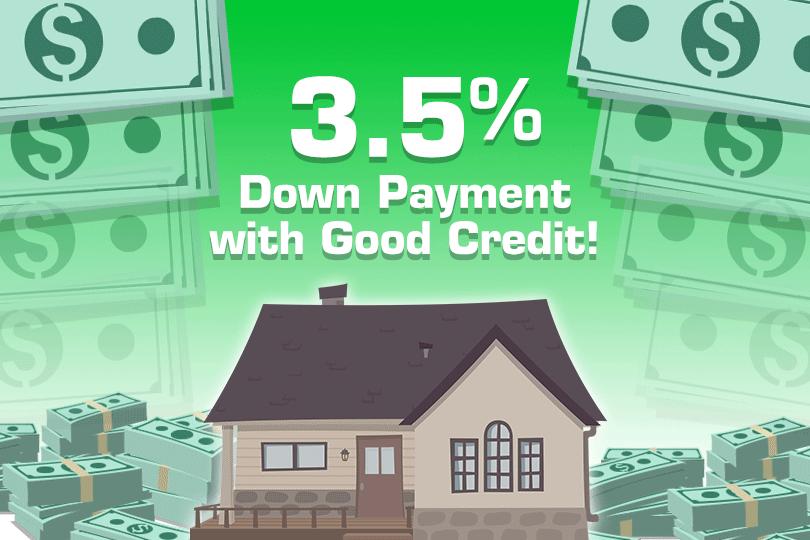What to Know About Down Payments
December 23, 2022
While down payments are one of the biggest obstacles for many in the mortgage process, it helps to understand the ins and outs of why they play such a big role.
Why Do Down Payments Matter?
Down payments go a long way in giving a lender peace of mind when loaning you a sizeable chunk of money for a home purchase. By putting money down on a home, you are assuring a lender that you intend to follow through on the loan to the best of your ability.
Additionally, the amount of money you are able to put down does not affect the interest rate you get from a lender, but it does play a part in how much you pay in interest over the life of the loan. That essentially means that the less you borrow, the less interest you’re paying on it. If your home costs $300,000, and you pay $40,000 down, you would be paying interest on $260,000. Whereas if you put only $20,000 down, you would be paying the same interest rate on a larger amount, making it amount to larger interest payments in total.
Down Payment Requirements
When shopping for a mortgage, the down payment requirements play a big role in your decision, so it helps to know what the conditions are for the different types of home loans.
For most conventional loans, borrowers must pay 20% of the purchase price. Since many first-time homebuyers find it difficult to afford such a large, upfront payment, conventional lenders tack on a monthly Private Mortgage Premium until the buyer is able to pay off 20% of the purchase price.
Since FHA loans are backed by the government, they have a lower down payment requirement of 3.5% of the purchase price. It is important to keep in mind that though the FHA has set this low limit, FHA-approved lenders can place “overlays” and place more stipulations.
Down Payment Assistance
While all this may seem daunting, keep in mind that there is a way to make saving easier. As a borrower, you should know that down payment assistance is available in three forms:
Down Payment Grants: State and municipal agencies and housing authorities have many programs for first-time and repeat homebuyers that can be put towards paying mortgage expenses like down payments and closing costs, without any repayment stipulations.
Second Mortgages: Some assistance programs are offered as a second mortgage with low- or zero-interest rates that need to be paid when the home is paid off, sold, or refinanced. Some loans are completely forgiven after a certain period of time.
MCC: A Mortgage Credit Certificate (MCC) is a tax credit issued by state or local government that allows a taxpayer to claim some portion of the mortgage interest paid. While this is not a tax deduction, it does provide a dollar-for-dollar tax credit to homebuyers for the interest paid during a given tax year.
Keep in mind that all these assistance programs come with their own eligibility criteria, and may be awarded to applicants based on income level, credit scores, occupation, etc.
------------------------------
RELATED VIDEOS:
You're Almost There When You Get Your Loan Approval
Learn About the Mortgage Insurance Premium (MIP)
Pre-approval Starts the Mortgage Process

FHA Loan Articles
September 8, 2023Borrowers considering an FHA loan should be familiar with some basic loan terminology. These loans are popular among first-time homebuyers and those with lower credit scores because they often offer more flexible eligibility requirements and lower down payment options.
September 2, 2023You may have heard the terms co-borrower and cosigner in connection with your FHA loan process, but aren't sure about the distinction. Both a co-borrower and a cosigner can help a primary borrower qualify for a mortgage, but they have different roles and responsibilities.
August 27, 2023The Federal Housing Administration has specific credit requirements and guidelines for borrowers looking to buy or refinance homes with an FHA loan. In addition to what FHA guidelines state, lenders may have more stringent requirements that may vary from one lender to another.
August 23, 2023Mortgage APR (Annual Percentage Rate) and a loan's interest rate are two different things, although they are closely related. Understanding the difference is an important part of a borrower's analysis of the true cost of their mortgage.
August 19, 2023FHA refinance loans allow homeowners with existing FHA loans to refinance their mortgages. These loans are designed to help borrowers take advantage of lower interest rates, reduce their monthly mortgage payments, or access equity in their homes for various purposes.







